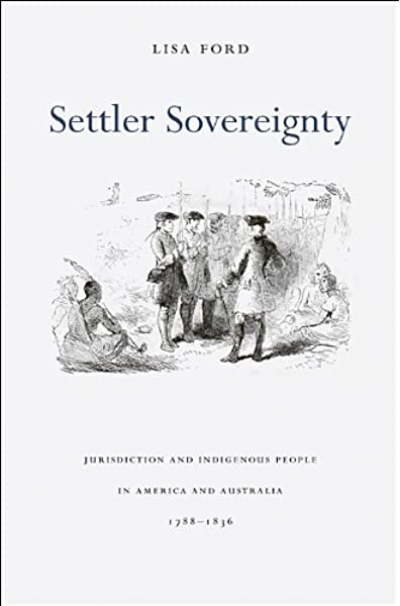History
Death or Liberty: Rebels and radicals transported to Australia 1788–1868 by Tony Moore
On the shelves of Australia’s bookshops colonial history follows military history in popularity, though a distant second. While, say, Allen & Unwin has made brave efforts with a succession of books about the convict period – Hamish Maxwell-Stewart’s Closing Hell’s Gates (2008), Babette Smith’s Australia’s Birthstain (2008) or Grace Karskens’s The Colony (2009) – not one (not even Thomas Keneally with his Australians: Origins to Eureka, 2009) has sold as well as Robert Hughes’s The Fatal Shore (1987). Hughes spoiled the Bicentennial celebrations for a generation of scholars, piqued at such a sensational popular book, one that outsold their academic books combined.
... (read more)The Water Dreamers: The remarkable history of our dry continent by Michael Cathcart
A few years ago, I heard Michael Cathcart speak on ‘the myth of the inland sea’. It was one of the funniest takes on Australian history I have heard. He related how his initially confident search for statements of belief in an inland sea by early Australian colonists petered out in the face of lack of evidence. Certainly, the explorer Charles Sturt believed in an inland sea and in his divine mission to discover it, but by 1845 he knew better. Finding little other evidence of the inland sea as the impetus for exploration, Cathcart decided it must be a creation of historians from Ernest Giles in 1889 to Derek Parker in 2007, with the idea recycled uncritically from book to book. Cathcart intended his research to be an academic thesis in history. How hard it must have been to be his academic supervisor. Each session must have ended in laughter and a mounting sense of desperation. How could an increasing lack of evidence be turned to good thesis account?
... (read more)A Three-Cornered Life: The Historian W.K. Hancock by Jim Davidson
Name a selection of your own most interesting and iconic Australians of the last century. My personal list would begin with John Monash, Donald Bradman, and W.K. Hancock.
... (read more)Radical Sydney: Places, Portraits, and Unruly Episodes by Terry Irving and Rowan Cahill
Witnesses as diverse as Plato in the Republic, James Joyce in Ulysses and Lewis Mumford in The City in History have testified that ultimately, in some metaphorical if not metaphysical sense, the City is, above all else, an expression of love. Terry Irving and Rowan Cahill, luminaries of the New Left in the 1960s and 1970s, currently associated with the University of Wollongong, are assuredly in love with Radical Sydney, a city which may or may not be with us still. There is, however, a whiff of Yeats’s ‘Romantic Ireland’s dead and gone, it’s with O’Leary in the grave’, as there is of Beckett’s borrowing from the French: ‘The only true Paradises are lost Paradises’. Yet Irving and Cahill are anything but Romantics. Radical Realists, rather. They are not afraid to quote those who disagree with them: for example, the head of the Australian Bureau of Crime Intelligence who described the Sydney of the 1950s as ‘a stinking city, one of the most corrupt in the world’. Indeed, as the soundtrack of Underbelly insists: ‘It’s a jungle out there.’
... (read more)Possessing the Dead: The Artful Science of Anatomy by Helen MacDonald
In 1543, Flemish anatomist Andreas Vesalius, in De Humani Corporis Fabrica (On the Fabric of the Human Body), wrote: ‘the violation of the body would be the revelation of its truth.’ Three hundred years later, English, Scottish and Australian anatomists, anatomy inspectors, museum curators and seemingly anyone involved in the business of bodies adopted the credo of violation to the extent of also violating the truth. The revelation of their contravention of laws and desecration of the dead is the subject of Helen MacDonald’s second book on the cadaver trade.
... (read more)Anzacs In Arkhangel: The Untold Story of Australia and the Invasion of Russia 1918-19 by Michael Challinger
The Great War fractured the Europe of its day, and the ripples of the calamity it represented continued to be felt years after the formal hostilities ended in November 1918. Former combatants carried their experiences throughout the rest of their lives; some found it difficult to ‘let go’, while others who had seen little or nothing of the war at first hand felt compelled for various reasons to experience the untidy aftermath of conflict where this continued to play itself out. Russia, in the aftermath of the October Revolution, was one such venue.
... (read more)Lost Worlds: Latin America and the imagining of empire by Kevin Foster
Start with the cover, cunningly designed to provoke a double take. What at first glance appears to be a cigar-chomping Mexican bandido in an oversized sombrero proves, on closer examination, to be a grinning British soldier celebrating victory in the Falklands. All he needs to go Latin is a big hat, a bullet-studded bandolier and a cigar. Three props conjure a chuck wagon full of clichés. The sombrero speaks of braggadocio and machismo, Hugo Chavez, Manuel Noriega, Juan Peron, generalissimos and juntas. But also of laziness – a hat to pull down over your face when, slumped against the adobe on a dusty side street, you sleep off the tequila. Poverty born of sloth, whose only remedy is to slip north across the Rio Grande: wetbacks, drug runners, illegals.
... (read more)Paupers, Poor Relief and Poor Houses in Western Australia, 1829–1910 by Penelope Hetherington
The first attempt to settle Western Australia, in 1827, failed. This book brings home that the second attempt, in 1829, was also very fragile and could well have failed. By 1850 there were still only 5900 non-Aboriginal people in the colony. By any measure, this was well short of the critical mass of population needed to sustain development in such a remote and vast outpost.
... (read more)Settler Sovereignty: Jurisdiction and indigenous people in America and Australia, 1788–1836 by Lisa Ford
The federal government’s intervention in Aboriginal communities in the Northern Territory is, above all, an exercise of power. It illustrates for all to see that the government can interfere with the smallest details of domestic life in a blatantly discriminatory way, regardless of Australia’s international obligations and professed belief in racial equality. It declares to the world that adult Aborigines can be treated like children. Both the present and previous government would argue, in a time-honoured way, that it is for the communities’ own good.
... (read more)Documents that Shaped Australia: Records of a nation’s heritage by John Thompson
For many undergraduate students of Australian history in the 1960s (when there were still plenty of them), the set text was not a narrative history but Manning Clark’s Select Documents in Australian History (1950, 1955). Dry but fascinating, the documents covered the period from 1788–1900. First published more than a decade before the opening volume of Clark’s A History of Australia, here were the bones of the research for that work. In his introduction to Documents That Shaped Australia: Records of a Nation’s Heritage, John Thompson acknowledges Clark and Frank Crowley’s Modern Australia in Documents (1973). He has, however, done something different. This book has a smaller number of items than its predecessors, but it is attractively and extensively illustrated (usually, but not always, with photographs of the documents). No doubt Thompson’s publisher, Pier 9, thought of school library sales for the book. It is a hope that deserves to be rewarded.
... (read more)










